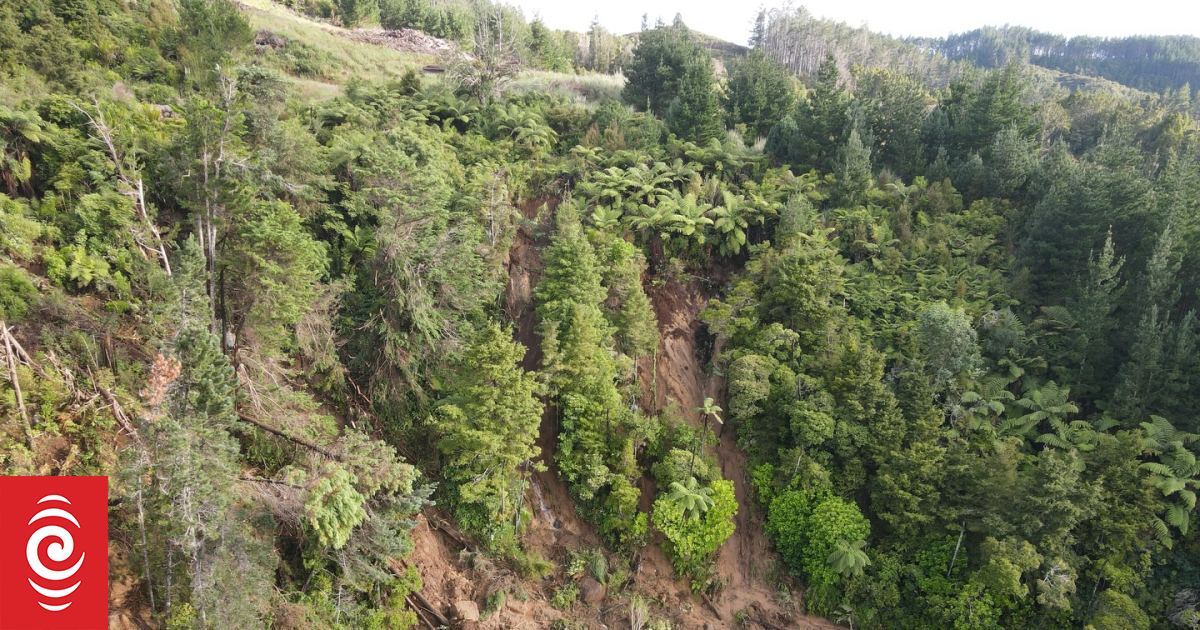Many Northlanders are experiencing lingering adverse health effects from Covid-19. Photo / Michael Cunningham
Kerikeri resident Leigh Bramwell didn’t plan on eating her dog’s biscuits.
But with long Covid messing with her concentration and focus, and Maddie ‘s dog food jar sitting right beside the muesli, it was an
accident waiting to happen.
So Bramwell poured the biscuits into her breakfast bowl, added milk and yoghurt, then proceeded to eat a couple of mouthfuls.
“It took me a while to notice what I’d done,” she said.
“It tasted like you’d expect dog biscuits to taste.”
Bramwell contracted Covid in July after attending a concert.
“The actual Covid was no worse than a medium flu and lasted about a week,” she said.
“I had a couple of days I didn’t feel like doing anything but lying in bed.
Advertisement
“Then I started to get better … but after a few more days I started feeling bad. I was incredibly exhausted, I couldn’t do anything.
“Ordinary things like getting dressed and having a shower were really exhausting.
“I’ve never had that before in my whole life so it was quite scary really.”
Many Northlanders are still experiencing lingering adverse health effects from the virus.
According to the Ministry of Health, anyone can develop long Covid, but it is more common if you had severe symptoms when you first got sick.
People have more chance of developing it if they are over 50 years old, have underlying health conditions, are female, or if they had multiple symptoms from the initial infection.
/cloudfront-ap-southeast-2.images.arcpublishing.com/nzme/EHRQDH5Z5BAGRDJWEN4CBRBTRA.JPG)
Symptoms include fatigue, fever, joint and muscle pain, nausea and vomiting, breathlessness and coughing, headaches, sleep disturbance – and the dreaded brain fog.
Bramwell said she found the “brain fade most irritating”.
Advertisement
She created a mess after putting a leftover pot of rice, with some rice inside, in the dishwasher, and accidentally put a T-shirt in the toilet instead of the laundry basket.
The first doctor sent her for blood tests, which came back fine, and the second gave her a vitamin B12 injection.
“For a long time I’m thinking is this long Covid or dementia or is this what happens when you get older and you forget stuff?”
Dr Simon Bristow said he’s had a steady stream of patients with long Covid coming to his Kerikeri-based Koru Medical Clinic over the last 18 months.
“An increasing number of people are recognising they’re getting long Covid which is similar to post-viral syndrome.
“Long Covid is an inflammation which is related to a dysfunction in your immune system.
“You’ve got inflammation affecting everything including your brain.
“There are more and more different symptoms that you recognise but certainly the brain fog, tiredness, muscle aches and pains, and headaches … which can drag on for months.”
Dr Bristow said there are a variety of methods they use at his clinic, which specialises in integrated medicine, to improve patients’ symptoms, particularly brain fog.
These include a variety of antioxidants and supplements such as intravenous vitamin C, methylated vitamin B12, multi-vitamins and minerals, zinc, acetylcysteine, quercetin and co enzyme Q10.
Cannabidiol (CBD) has anti-inflammatory properties and can also help, he said.
Dr Bristow said there wasn’t enough recognition of long Covid in New Zealand.
/cloudfront-ap-southeast-2.images.arcpublishing.com/nzme/4MAJKFVRJREBRIGLIL2OSPEJO4.JPG)
“If someone can’t work, they’re going to be struggling because of the fatigue, you can’t concentrate.
“A lot of people will need time off work and will be struggling when you’ve only got five or 10 sick days.”
A Pakaraka woman, who didn’t want to be named, said she got Covid in April and is still suffering from symptoms which include chronic fatigue.
She’s been “in and out of hospital” getting various scans and blood tests to try and figure out what’s wrong.
A month ago she was diagnosed with ‘inappropriate sinus tachycardia’ which occurs when the heart beats very quickly without a good reason.
“I’m really chronically fatigued, mornings are worse, I feel like I haven’t slept at all.
“Simple things like having a shower, doing dishes, cooking dinner, my heart feels like it’s pounding out of my chest.
“It feels like you’ve run a marathon if you’ve just had a shower.”
The 41-year-old is now on beta blockers to slow her racing heart and has visited a naturopath who believes she may have adrenal fatigue from Covid.
She plans on visiting a cardiologist in the new year for more tests.
“It’s caused a lot of anxiety. I’m scared to be on my own during the day, because … you’re standing up one minute and the next you’re on the ground.”
The number of recorded Covid-19 cases in Northland to date is 60,532. Health NZ said it doesn’t have any specific data on long Covid.
“Long Covid is a relatively new condition and our ability to identify and record cases is still evolving,” a spokesperson said.
“However, recovery from viral infections often requires rehabilitation for extended periods of time, and there is no doubt that some individuals who have had Covid-19 experience ongoing symptoms for weeks or months after their initial infection.”
In September, the Ministry of Health released long Covid guidelines for health professionals, individuals and those caring for people with long Covid.
The guidelines look at the options for care available to people with the condition, give advice to health professionals on what to look for when diagnosing long Covid and what resources are available to people to manage those symptoms.
“As there is no known cure for long Covid, the focus on the guidelines is identification, assessment, diagnosis, interventions, supports and care pathways for rehabilitation of individuals with the condition,” a spokesperson said.



